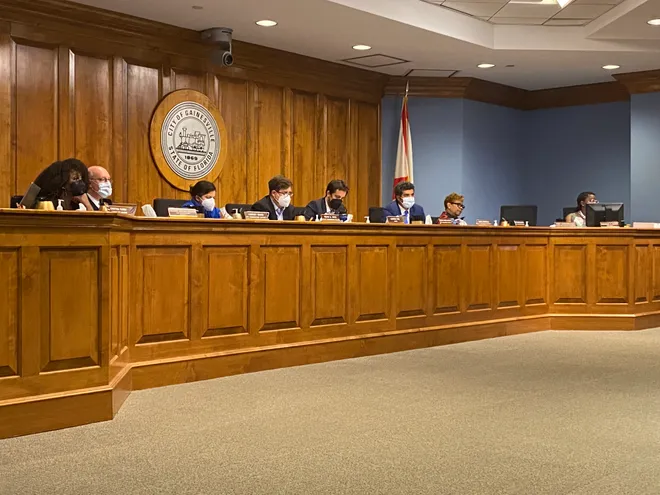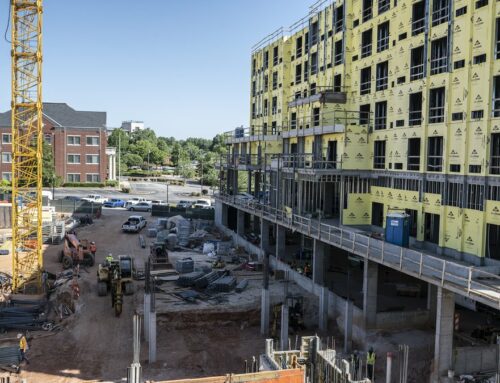On Tuesday, October 18th, the Gainesville city commission eliminated single-family zoning with a vote of 4-3, making Gainesville the first city in Florida to approve this kind of voting change.
The new decision, once enacted, would allow for duplexes, triplexes, and quadruplexes to be developed on land once designated for solo homes. First introduced on August 4th, this zoning change has served as a major point of controversy and the commission encountered numerous public protests against the decision as well as pushback from the state government.
Florida’s Response
Last month, Florida’s Department of Economic Opportunity (DEO) sent a letter to Gainesville’s mayor, Lauren Poe recommending that the city withdraws the proposal as it acts as a threat to affordable housing. The Department argued that the new rental housing would be used by the transitory student population, rather than permanent residents of Gainesville. It also stated that the city has not done the necessary research on the strain the increased citywide density would create on infrastructure, schools, and public resources.
Gainesville’s Impact
If the provision passes, it is likely the city will experience numerous lawsuits from its community. For example, Gainesville Neighborhood Voices, Inc., an affordable housing and neighborhood preservation non-profit is planning to take legal action if the provision continues.
“Every professional that has looked at this from professional planners to land use attorneys says this will not work,” said Casey Fitzgerald, president of the non-profit to WCJB last month.
Voting against the decision, Commissioner Cynthia Chestnut told WUFT “This is a very sad day for East Gainesville because it has opened the floodgates for gentrification,” and that she would be looking to reverse the decision when the new commission takes over in January.
Others argued in favor of the policy claiming that there is more demand than supply, and this provision would allow for expanded housing rights.
“It’s time to make housing legal again,” said Joshua Ney, the founder of Gainesville is for People, a chapter of YIMBY Action, a pro-housing development advocacy group.
Moving Forward
Legally, the Gainesville commission is required to take a second vote to finalize the decision, however, this is typically a formality as it is unlikely commissioners will change their vote. The policy will then be reviewed by the State Department of Economic Opportunity (DEO), where they will have 30 days from the final vote to approve and enact the measure.
Overall, this is a major decision from the Gainesville city commission. With national news sources such as Bloomberg reporting on the story, there are clear and important debates to be made regarding the policy.







Leave A Comment